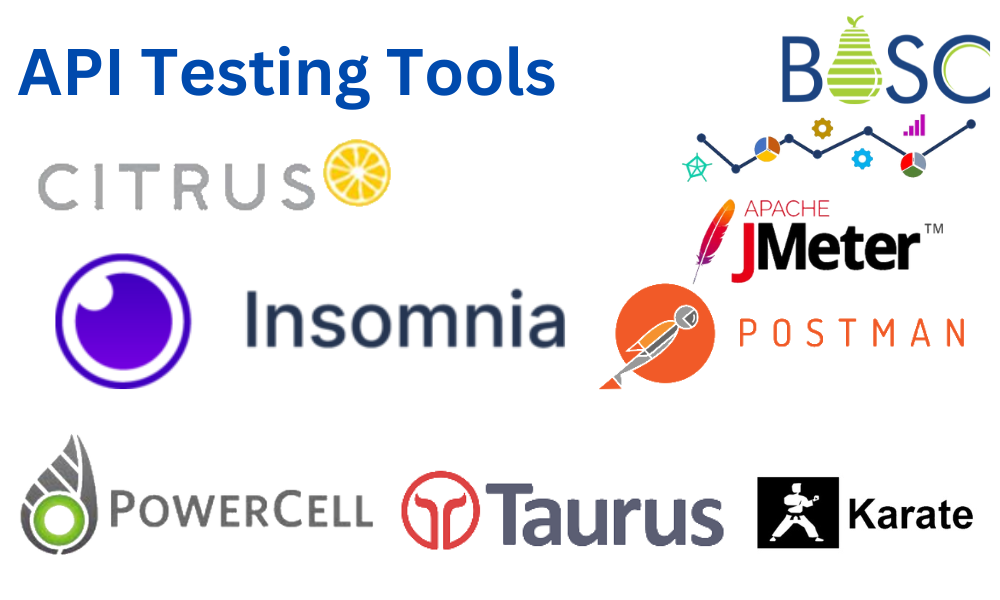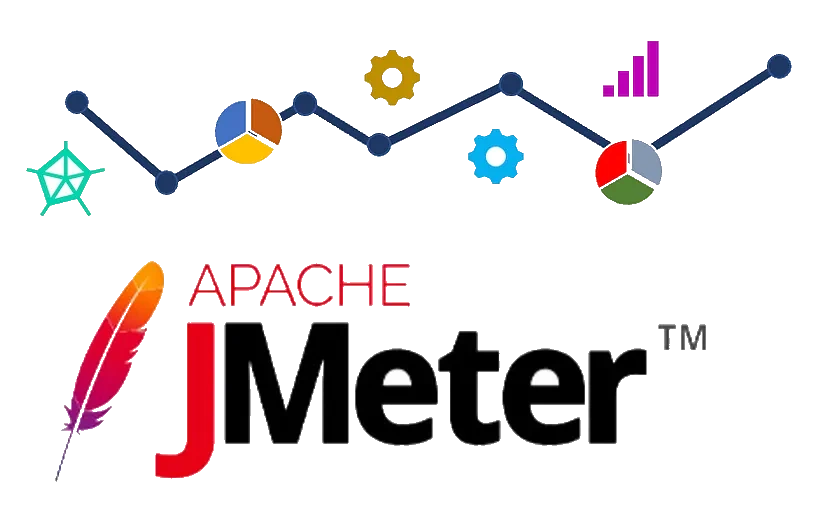
Best Tools To Use For API Testing In 2023
API testing has been indispensable in the growth of cloud applications and interconnected platforms. Various of the services we utilize regularly are based on multiple interconnected APIs so that the entire service is at the edge of the risk with only one API malfunctioning.
While creating, to make sure that APIs perform as per the expectations, the developers must do the API tests. A considerable number of testing tools for the API are available in the market, but how to find the best tools for API testing? This blog has described some of the leading API testing tools that will expedite your task and work.
What is API?
API is known as the Application Programming Interface. API is the software intermediary that permits you to communicate smoothly and flexibly between the two applications.
APIs are the connecting layer between the various layers of an web and mobile application development. It will simply play the role of the messenger for the applications, devices and databases.
Additionally, APIs are used for programming graphical user interface (GUI) components. The excellent API makes it easy for programmers to put all the blocks together by offering all the building blocks.
An API layer consists of the business logic of an app where a user interacts with the services, data, and functions of the application is determined.
An API layer or service layer is in direct touch with data and the presentation layer, occupying the fixed space for constant testing for QA and development teams. Web application have three layers:
-
- 1. Data layer
-
- 2. Service (API) lays
-
- 3. Presentation (UI) layer
What is API testing?
APIs are considered the central part of software development, connecting and transferring data and logic across disparate systems and applications. Testing will significantly improve the efficiency of the testing strategy and deliver faster software.
API testing usually consists of creating requests to single or multiple API endpoints and will validate the response for performance, security or functional correctness. At the same time, the UI testing will concentrate on validating the view and feel of the web interface.
However, API testing will emphasize business logic, data responses, security, and performance.
Why is API testing needed?
The changes in the software happen at a rapid pace, so it becomes essential to have tests that give faster feedback to the coders and testers. The primary advantage of API testing is flexibility, as it offers access to the application without any user interface.
A code-level functionality of the application will give the early evaluation that will build the strength before running any GUI tests.
How many types of AP testing tools are available there?
1. JMeter

Features:
- It uses various languages such as Java, PHP, and JavaScript.
- It is made to test web applications and expand its base to other test functions.
- JMeter includes all the functionality required to test an API, as some extra features will enhance your API testing efforts.
- It is implemented with Jenkins, which means you can add your API test to your CI pipelines.
2. Postman
Postman is an open-source, easy-to-install API testing tool. It is the better option for exploratory-type API testing and is good enough to create more integrated solutions per the requirements.
Features:
- Write and run the test for every request by using JavaScript.
- During the API testing in Postman, a developer will need the HTTP methods like GET, POST, PUT, etc.
- Store associated endpoints into the collection of this framework.
3. REST
Rest API the best and most powerful tool for API testing. While using Java, REST-Assured is an excellent option for API automation. Rest assured library is the tailor-made API tool for the Java domains that use the people to test and will validate the REST Services.
REST-Assured is the fluent Java library that is used to test HTTP-based RESTservices. It is created with the testing in mind and will implement the existing Java-based automation framework.
Features:
- It Developed the REST-Assured API so that one did not have to be an HTTP expert.
- It delivers behavior-driven development (BDD), and domain-specific language will simplify API testing.
- It has many baked-in functionalities, so one does not have to code things from scratch.
4. Soap UI
Soap UI is a free, open-source tool that is utilized for web application services.
Features:
- It is the primary API testing tool used to test web services.
- It is typically used for SOA (Service Oriented Architecture) Testing.
- It is efficient to check both SOAP web services and RESTful web services.
Also Read: Enterprise mobile app development complete guide 2022
5. Karate
Karate API testing tool is the open-source API test automation tool that scripts the calls to HTTP endpoints and will assert the JSON or XML responses as expected.
Features:
- API test is written with the use of BDD Gherkin syntax.
- This tool is easy to use as there is no need for Java knowledge for programming. It is a great blessing.
6. Fiddler
Fiddler allows the developer to monitor, manipulate, and reuse the HTTP requests.
Features:
- It will aid you in debugging web applications by capturing network traffic between the internet and test computers.
- It will enable you to inspect the incoming and outgoing information to monitor and will modify the request and responses before a browser receives them.

7. Citrus
Citrus open-source tool that will help to automate the integration tests for the messaging protocol and data format.
Features:
- It Works with JMS, HTTP, TCP/IP, REST, and many more.
- It creates the test by using Java or XML.
- If you are planning to test headless technologies beyond the REST services, then Citrus is best.
- It is made to handle any headless protocols, giving you an excellent solution for non-UI testing needs.
8. Powershell
Powershell is super efficient at automating various things from a command line.
Features:
- It only requires a single line of code to import a web services description language.
- It is installed on the entire windows machine.
- It is elementary to learn because it runs from a command line without any of its UI overhead.
9. Insomnia
Insomnia is a free and easy-to-use tool that possesses a visually attractive interface.
Features:
- Create HTTP request
- Allows you to see response details
- Organize your tests
- Generate the code snippets
10. Taurus
Taurus is an automation-friendly framework for constant testing. However, you can use it with the JMeter.
The primary benefit of the Taurus is that developers can write their tests in YAML. One can describe the full-blown script in only ten lines of text, allowing software or app developers to represent their texts in the YAML or JSON file.
Features:
- It allows many members to contribute to AI testing. In this, the test cases are written in the YAML, as the tests in this tool are more readable, making it simple to perform the code reviews.
- Taurus is perfect for doing performance testing in the CI/CD pipeline more efficiently.
- It gives a sort of abstraction layer on the top of JMeter.
11. Mulesoft
Mulesoft AnyPoint API manager is the platform where developers can create, design, manage and publish the APIs.
Features:
- It allows organizations to implement it with leading cloud services like SAP and many more.
- An AnyPoint platform will make use of Mule as the run time engine.
- API manager assures that each API is safe, secure, and simple in terms of complete lifecycle API management.
12. Apigee
Apigee by the Google cloud enables API managers to design, analyze, monitor, monetize, secure and publish the APIs.
Features:
- It is operated in the hybrid-cloud environment to perform digital acceleration.
- Apigee edge will build the API proxies, as one can get accurate data.
- Proxies are created by the Apigee edge, which will manage the security and authentication to deliver the best services.
Conclusion
Each organization has multiple requirements, and they deploy various tools per that particular project’s need. However, all of the API tools will work well. The role of the APIs is significant if it is from the software development and business point of view. Hence, the same functionality is accessible in the API tools, but the approach for each tool is different. The best procedure is to experience complete functionality and features and try to see which is best suited for the business requirements.
At BOSC Tech Labs, we focus on delivering excellent software development services and fulfilling application maintenance. Our team will listen to the client’s needs before beginning the project.
Frequently Asked Questions (FAQs)
1. What are the methods in API?
The API method is the HTTP request. To set up the method request, you will configure the HTTP method, path to API resource, headers, and applicable query string parameters. You can also configure the payload when the HTTP method is PATCH, PUT or POST.
2. Which is the major challenge in API testing?
The most vital challenge in API testing is that it creates tests that do not mimic a user experience. It is easy to set up difficulties verifying independent services and endpoints and call it a day when they all pass—for example, Test inventory API, test shopping cart API, and many more.
3. How many kinds of APIs?
Usually, there are four kinds of web APIs: open APIs, partner APIs, composite APIs and internal APIs.
Schedule a Call With Experts








